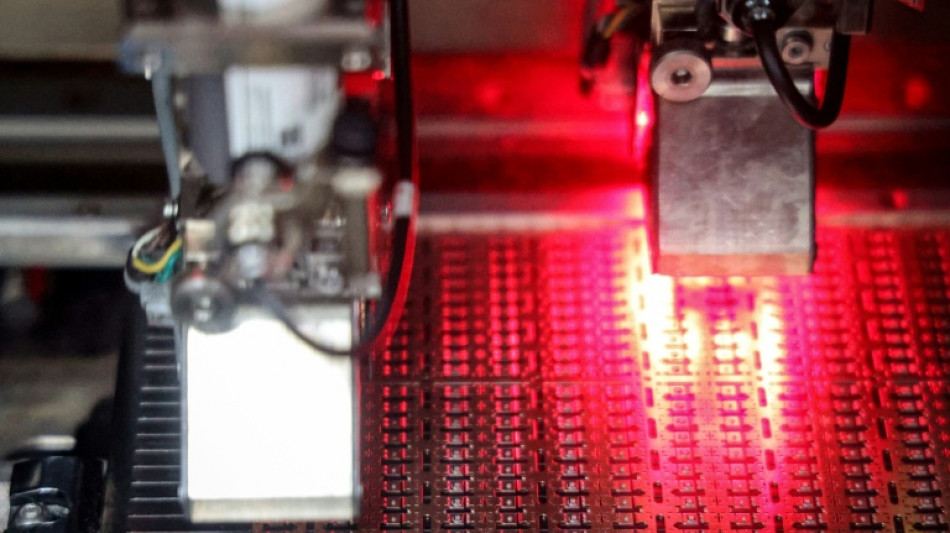
-
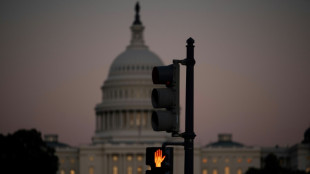 US government shutdown may last weeks, analysts warn
US government shutdown may last weeks, analysts warn
-
Arsenal host Lyon to start new Women's Champions League format

-
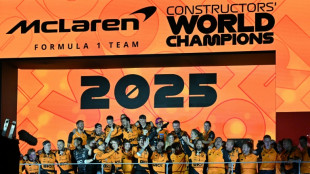 Gloves off, Red run, vested interests: Singapore GP talking points
Gloves off, Red run, vested interests: Singapore GP talking points
-
Bills, Eagles lose unbeaten records in day of upsets

-
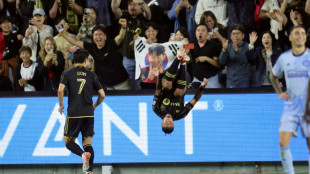 Muller on target as Vancouver thrash San Jose to go joint top
Muller on target as Vancouver thrash San Jose to go joint top
-
Tokyo soars, yen sinks after Takaichi win on mixed day for Asia
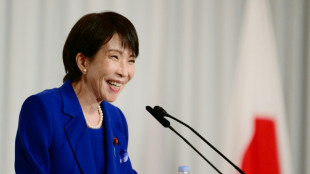
-
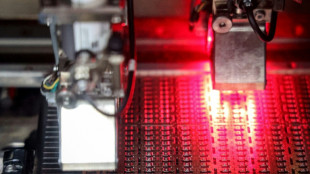 China's chip challenge: the race to match US tech
China's chip challenge: the race to match US tech
-
UN rights council to decide on creating Afghanistan probe

-
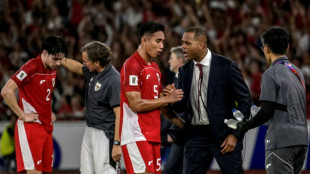 Indonesia sense World Cup chance as Asian qualifying reaches climax
Indonesia sense World Cup chance as Asian qualifying reaches climax
-
ICC to give war crimes verdict on Sudan militia chief
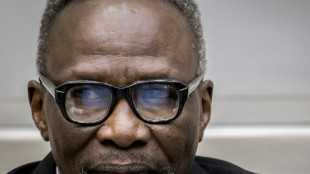
-
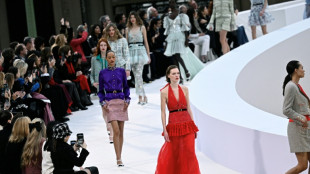 Matthieu Blazy to step out as Coco's heir in Chanel debut
Matthieu Blazy to step out as Coco's heir in Chanel debut
-
Only man to appeal in Gisele Pelicot case says not a 'rapist'
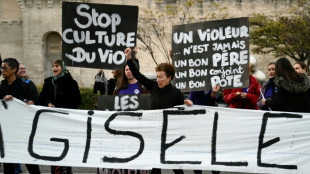
-
 Appetite-regulating hormones in focus as first Nobel Prizes fall
Appetite-regulating hormones in focus as first Nobel Prizes fall
-
Gisele Pelicot: French rape survivor and global icon

-
 Negotiators due in Egypt for Gaza talks as Trump urges quick action
Negotiators due in Egypt for Gaza talks as Trump urges quick action
-
'My heart sank': Surging scams roil US job hunters
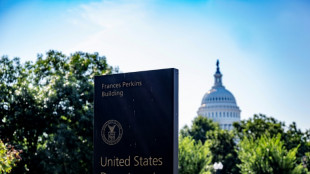
-
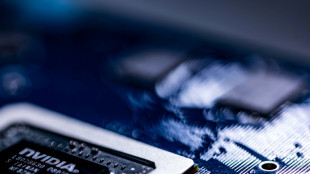 Competition heats up to challenge Nvidia's AI chip dominance
Competition heats up to challenge Nvidia's AI chip dominance
-
UK police to get greater powers to restrict demos

-
 Guerrero grand slam fuels Blue Jays in 13-7 rout of Yankees
Guerrero grand slam fuels Blue Jays in 13-7 rout of Yankees
-
Five-try Bayonne stun champions Toulouse to go top in France
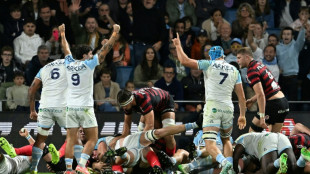
-
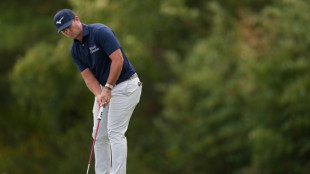 Fisk reels in Higgo to win maiden PGA Tour title in Mississippi
Fisk reels in Higgo to win maiden PGA Tour title in Mississippi
-
Aces overpower Mercury for 2-0 lead in WNBA Finals
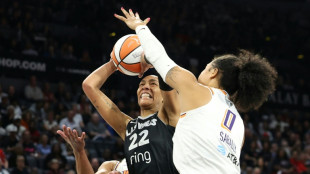
-
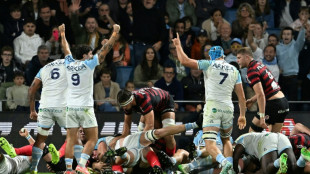 Bayonne stun champions Toulouse to go top in France
Bayonne stun champions Toulouse to go top in France
-
Greta Thunberg among Gaza flotilla detainees to leave Israel

-
 Atletico draw at Celta Vigo after Lenglet red card
Atletico draw at Celta Vigo after Lenglet red card
-
Trump administration brands US cities war zones
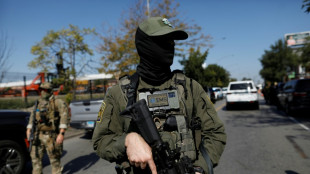
-
 Ethan Mbappe returns to haunt PSG as Lille force draw with Ligue 1 leaders
Ethan Mbappe returns to haunt PSG as Lille force draw with Ligue 1 leaders
-
Hojlund fires Napoli into Serie A lead as AC Milan held at Juve

-
 Vampires, blood and dance: Bollywood horror goes mainstream
Vampires, blood and dance: Bollywood horror goes mainstream
-
Broncos rally snaps Eagles unbeaten record, Ravens slump deepens

-
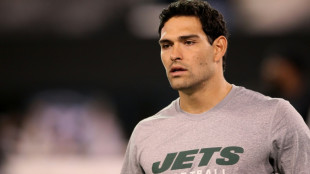 Former NFL QB Sanchez charged after allegedly attacking truck driver
Former NFL QB Sanchez charged after allegedly attacking truck driver
-
France unveils new government amid political deadlock

-
 Hojlund fires Napoli into Serie A lead ahead of AC Milan's showdown with Juve
Hojlund fires Napoli into Serie A lead ahead of AC Milan's showdown with Juve
-
Child's play for Haaland as Man City star strikes again
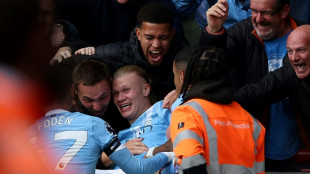
-
 India crush Pakistan by 88 runs amid handshake snub, umpiring drama
India crush Pakistan by 88 runs amid handshake snub, umpiring drama
-
Hojlund fires Napoli past Genoa and into Serie A lead

-
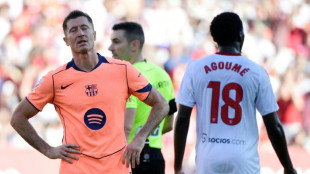 Sevilla rout 'horrendous' Barca in Liga thrashing
Sevilla rout 'horrendous' Barca in Liga thrashing
-
Haaland fires Man City to win at Brentford, Everton end Palace's unbeaten run
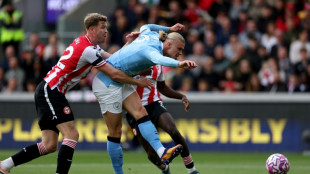
-
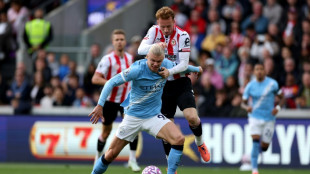 Haaland extends hot streak as Man City sink Brentford
Haaland extends hot streak as Man City sink Brentford
-
Italy working hard to prevent extra US tariffs on pasta

-
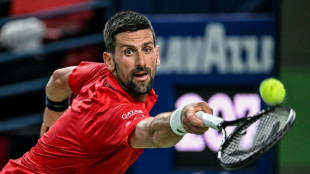 Sinner out of Shanghai Masters as Djokovic battles into last 16
Sinner out of Shanghai Masters as Djokovic battles into last 16
-
Swift rules N. America box office with 'Showgirl' event
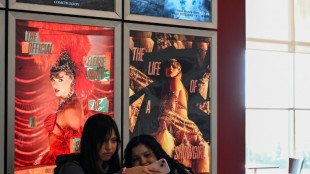
-
 Ryder Cup hero MacIntyre wins Alfred Dunhill Links on home soil
Ryder Cup hero MacIntyre wins Alfred Dunhill Links on home soil
-
Republicans warn of pain ahead as US shutdown faces second week
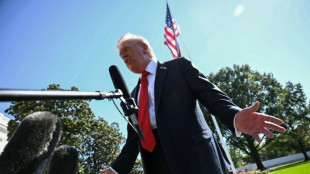
-
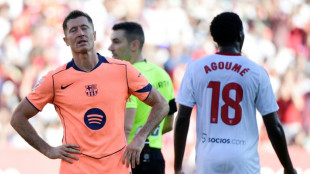 Sevilla rout champions Barca in shock Liga thrashing
Sevilla rout champions Barca in shock Liga thrashing
-
Norris-Piastri clash overshadows McLaren constructors' title win
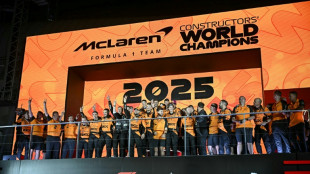
-
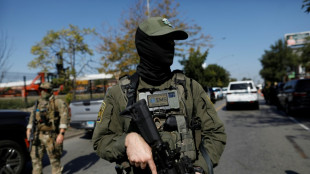 Trump administration declares US cities war zones
Trump administration declares US cities war zones
-
Bad Bunny takes aim at Super Bowl backlash in 'SNL' host gig

-
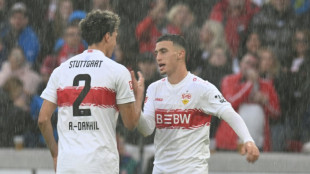 El Khannouss fires Stuttgart into Bundesliga top four
El Khannouss fires Stuttgart into Bundesliga top four
-
Insatiable Pogacar romps to European title


China's chip challenge: the race to match US tech
China's push to develop top-end artificial intelligence microchips is gaining momentum, but analysts say it will struggle to match the technical might of US powerhouse Nvidia within the current decade.
Ramping up its chip industry is a way for Beijing to beat restrictions imposed by Washington on exports of the most advanced chips -- used to power AI systems -- to China.
The United States cites national security concerns, such as the risk of giving China a military advantage, for the block, a geopolitical bind that shows no sign of easing.
"China wants chips that policy cannot take away," said Stephen Wu, a former AI software engineer and founder of the Carthage Capital investment fund.
However, "full end-to-end parity with Nvidia's best chips, memory packaging, networking and software is not guaranteed" by 2030 or even beyond, Wu told AFP.
Announcements of computing upgrades by Chinese companies and reports of plans to dramatically increase output of advanced semiconductors have driven up chip-related shares in the country.
But to catch up with Nvidia, China needs to make fast progress on high-bandwidth memory and packaging -- "the hardest and most complex parts of the chip", Wu said.
Other challenges include building the right software to harness the chips' power, and upgrading manufacturing tools.
"These chips are extremely advanced and tiny, so imagine carving a stone sculpture with a hammer instead of a chisel," Wu said.
- 'Only way' to succeed -
"The industry consensus is China at least needs five to ten years to catch up," said George Chen of The Asia Group, a view reflected by Dilin Wu, research strategist at Pepperstone.
"The future is bright, but not yet," she told AFP.
"It's maybe a 2030 story", as "significant gaps remain in terms of performance, and also in terms of energy efficiency and ecosystem maturity".
Public demand for AI services is booming in China, and while government support for new chips is "substantial", the investment required is "immense", she added.
Shares in Alibaba, the e-commerce titan ploughing billions of dollars into AI tech, have more than doubled since January.
And Chinese chip industry leader Huawei will reportedly double output of its top Ascend 910C chip in the next year.
The hype has also sharply driven up stocks in the smaller chipmaker Cambricon, sometimes dubbed "China's Nvidia".
"I think this rally can be sustained", partly because it is driven by Chinese government policy, Pepperstone's Wu said.
Even Xiaomi, whose 2014 venture into chip design was a self-confessed flop, is turning back to semiconductors.
"Chips are the only way for Xiaomi to succeed," the company's CEO Lei Jun said in Beijing last month, referring to the production of high-end smartphone chips.
- 'Best in China' -
China, the world's biggest consumer of semiconductors, is a huge market for California-based Nvidia.
Nvidia chips are still "the best... to train large language models", the systems behind generative AI, said Chen Cheng, general manager for AI translation software at tech firm iFLYTEK.
Faced with US restrictions, "we overcame that difficulty" by shifting to Chinese-made tech, she said in a group interview.
"Now our model is trained on Huawei chips" -- currently the best in China, Cheng said.
Meanwhile Nvidia, the world's largest company by market capitalisation, is under pressure from both sides.
The Financial Times reported last month that Beijing had barred major Chinese firms from buying a state-of-the-art Nvidia processor made especially for the country.
And the company must now pay the US government 15 percent of revenue from certain AI chip sales in China.
Nvidia boss Jensen Huang has warned that restrictions on exporting his most cutting-edge semiconductors to China will only fuel the country's rise.
"They're nanoseconds behind us," the leather jacket-clad Huang said on a tech business podcast.
"So we've got to go compete."
L.Durand--AMWN